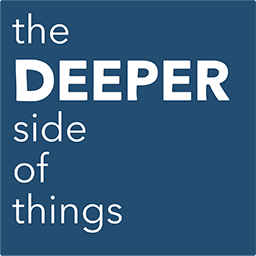In episode two of the Great Resignation Uncensored we interview Karen, an HR professional who felt at odds with her management. Similar to Roshawn in episode one, it came down to ethics, which is among the top predictors that lead to resignation relative to income.
Karen worked hard to advocate for the employees, especially when assisting women who brought sexual harassment charges forward. Her employer, however, sought to limit its legal exposure by moving the women to other departments while failing to discipline the men.
“It was a choice of money or life,” Karen said, and she chose life. She was surprised to find that she didn’t need nearly as much money as she thought she would to retire early. So, instead of seeking an HR position with another company she left the workforce entirely.
In listening to Karen’s story, I’m reminded of the birth of the labor movement in the later portion of the 19th century. The industrial revolution brought “jobs” in factories in which workers answered to a bell or horn, worked robotically, took breaks at the same time, and quit for the day when another bell or horn sounded.
But the 40-hour work week didn’t come about until the passage of the Fair Labor Standards Act in 1938, which also ended child labor and created the minimum wage. Truly a positive movement that ended extreme exploitation. But now we are at a crossroads again. This crossroads has not come about because of ideology or theory, but because human consciousness is evolving. I would say it’s always been evolving, or mostly evolving, albeit slowly.
The labor movement began when enough people woke up to the understanding that they were being exploited. And when a population wakes up, they organize en masse and bring change. Today we are waking up again . . . to the understanding that work doesn’t have to look the way we were conditioned to think of it.
There was a time when I was in the corporate realm, I had a boss who was incapable of telling the truth, even when the truth was a pretty good story. She would ask to meet with me prior to meeting with those in leadership higher than us so we could get our “stories straight.”
I would say, “Why don’t we just tell the truth.” And she would respond, “We can’t do that.”
It made me feel ill. I refused and paid a heavy price for it. But I continued on for another six years before I made the decision to resign from the traditional workforce.
Hearing Roshawn’s and Karen’s stories reminds me that the vast majority of people want to do good work and feel good at the end of the day. Their stories confirm my world view that people are basically good, particularly when we see how willing people are to risk their careers and financial futures to retain their integrity.
The famous scene in the 1967 film The Graduate with Dustin Hoffman in which his father’s friend takes the young Hoffman aside and says just one word to him, “Plastics.” The scene is indicative of the heavy cultural conditioning we’ve all been receiving for the past hundred years, which is work at a well-paying “job,” build a career — in the traditional sense — and you’ll have a good life.
But what people think of as a “good life” has just shifted. It’s no longer about money. Nor is it about title or status. It’s about doing work that’s fulfilling and meaningful. As Karen said, “We have one life.” So similar to what Roshawn said, “Life is not as long as you think.” Two women living and working on opposite sides of the country and yet expressing what millions are waking up to each day.
Give a listen and tell us what you think in the comments. And if you know of someone who has resigned and left the traditional workforce altogether, please send them our way. We’d love to talk with them and maybe have them on the show.









Share this post